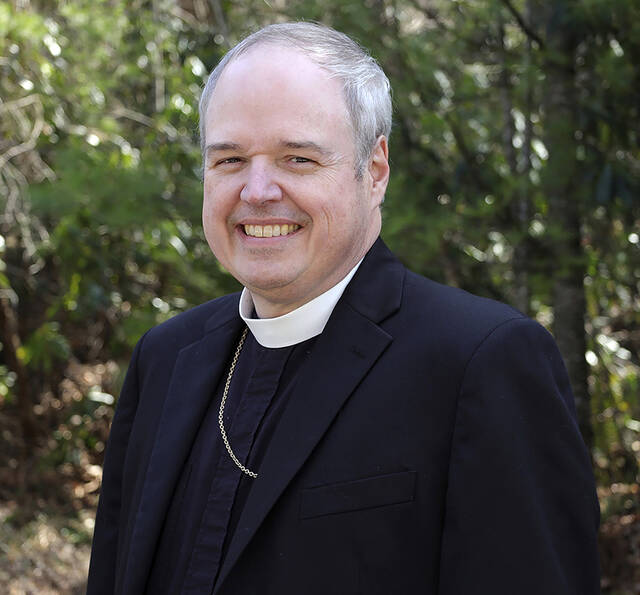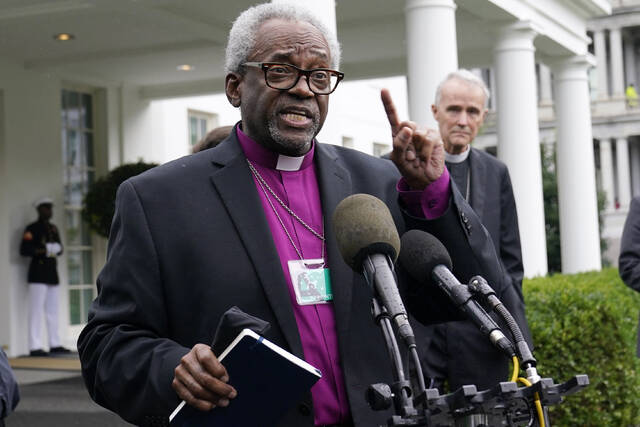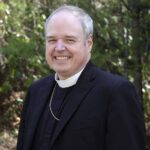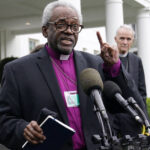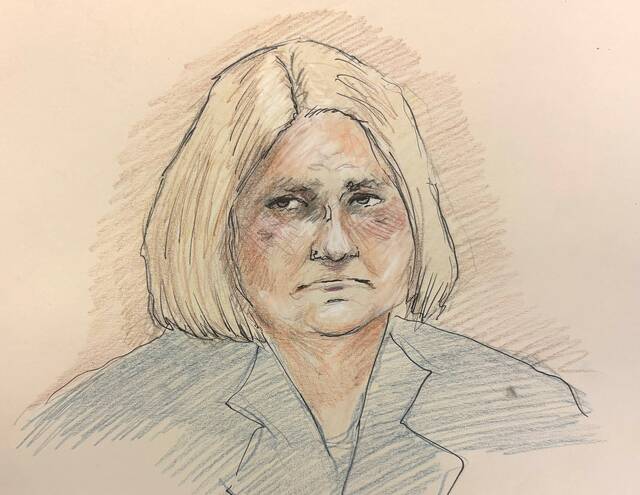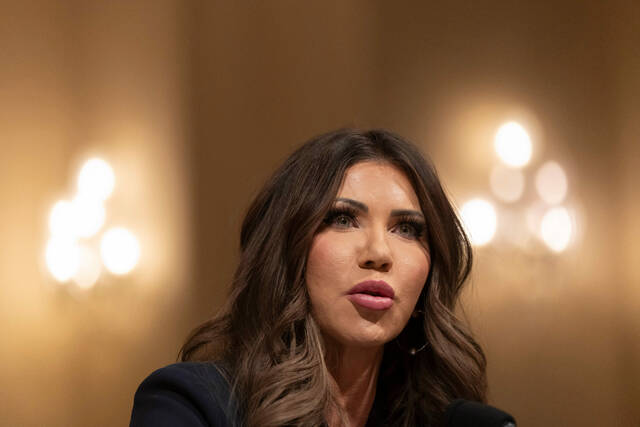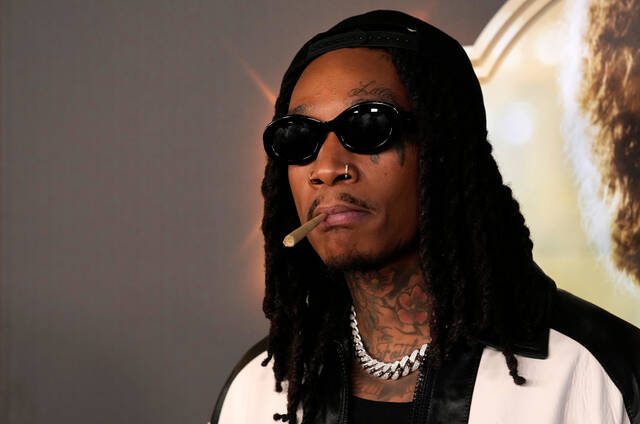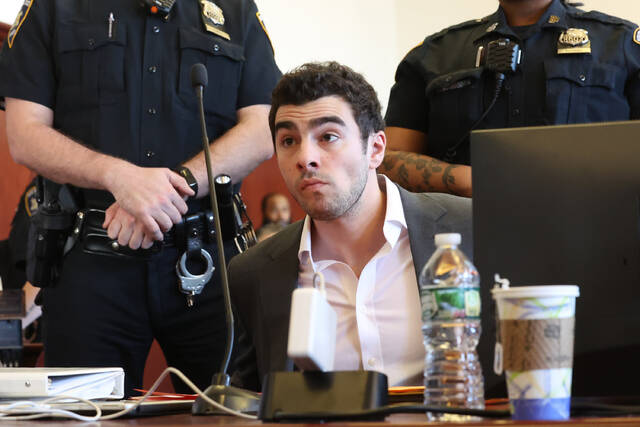The Right Rev. Sean Rowe, a 49-year-old bishop from Western Pennsylvania, on Wednesday became the youngest person ever elected as leader of the Episcopal Church.
He immediately issued a sobering call for the church, which has faced division and chronic membership loss, to confront an “existential crisis” that he compared with the steel industry collapse in his native Rust Belt. Rowe was born in Sharon, Mercer County.
Rowe, who leads two small dioceses along Lake Erie, will succeed Bishop Michael Curry, the first African American to hold the position, when Curry’s nine-year term ends on Nov. 1. The presiding bishop serves as the denomination’s chief pastor, president and CEO.
Rowe was elected on the first ballot in the House of Bishops, which convened behind closed doors Wednesday in the Episcopal cathedral in Louisville. Rowe received 89 votes, the required majority, with other votes widely dispersed among the other four candidates.
The House of Deputies, consisting of clergy and lay people, confirmed his election with 95% of the vote, followed by strong applause.
The only presiding bishop to take the post at a younger age than Rowe was the first one, William White, who was 41 when he served briefly in 1789 when there was no leadership election.
Rowe was 32 in May 2007, when he was elected bishop of the Diocese of Northwestern Pennsylvania, based in Erie. For almost 12 years, he was the youngest bishop in the Episcopal Church.
In 2019, he also began overseeing the Diocese of Western New York, based in Buffalo. The adjacent dioceses, with fewer than 10,000 members between them, have been collaborating on ministries in recent years.
He said that sort of collaboration is just one example of how the church needs to adapt to new realities.
“It’s not too strong to say that we’re facing an existential crisis,” Rowe told the House of Deputies after his election. “It’s not because our church is dying, or because we’ve lost the belief in the salvation of God in Jesus Christ, but because the world around us has changed and continues to change. It changes all the time. And God is calling us ever more deeply into the unknown.”
The Episcopal Church is an offshoot of the Church of England in the United States and has been the spiritual home of many of the American founding fathers and U.S. presidents.
But as with other mainline Protestant denominations, membership in the Episcopal Church has been declining for decades. After peaking at 3.4 million in 1959, it had fallen to 1.9 million when Curry was elected leader in 2015 and dipped to under 1.6 million in 2022. Average Sunday church attendance for Episcopalians nationwide was 614,241 in 2015; by 2022 it had dropped to 372,952.
Rowe compared the church’s challenges to the collapse of the steel industry, which had employed his grandparents, when he was growing up in Pennsylvania.
“I’ve been around to see things that I love go away,” he said. “I watched everything that I had known evaporate.”
He cited tensions within the denomination, without giving specifics, and called on members to be more gracious and forgiving toward each other. He called on them to turn their “anger at injustice instead of turning it inward on each other.”
Still, he offered reassurance by quoting the late Catholic monk and author Thomas Merton — a favorite son of the convention’s host state of Kentucky — about proceeding in faith despite uncertainty.
“You do not need to know precisely what is happening” to embrace challenges “with courage, faith, and hope,” he said.
On a practical level, Rowe called for the church to avoid top-heavy structures and steer more of its funds and resources toward local and diocesan ministries.
Rowe graduated from Grove City College in 1997 with a bachelor’s degree in history.
He graduated from Virginia Theological Seminary in 2000, before returning to Pennsylvania.
The bishop is known for his research and work on organizational learning and adaptive performance in the church. He earned a doctorate in organizational learning and leadership at Gannon University in Erie in 2014.
After the election, Curry praised his successor in a news conference. He credited Rowe with both “a vision and a sense of the mechanics that will help us get there.”
Curry, in opening remarks to the General Convention on Sunday, urged delegates to remain optimistic.
“This Episcopal Church is stronger, more durable and has a future that God has decreed and that God has figured out,” he said. “Don’t you worry about this church. Don’t you weep and don’t you moan. Just roll up your sleeves and let’s get to work. That’s our future.”
Throughout his ministry, Curry has been an outspoken leader on a range of challenging issues, including racial reconciliation, climate change, immigration policy, and LGBTQ+ equality. Among his favored causes: establishing ecumenical summer day camps for children, creating networks of day care providers, and encouraging large investments in urban neighborhoods.
In 2018, he became a global star with a stirring sermon at the widely televised royal wedding of Britain’s Prince Harry and Meghan Markle.
Curry, 71, has battled a variety of health problems since May 2023, when he was hospitalized for treatment of internal bleeding and an irregular heartbeat. In March, doctors successfully surgically inserted a pacemaker as part of ongoing treatment.


